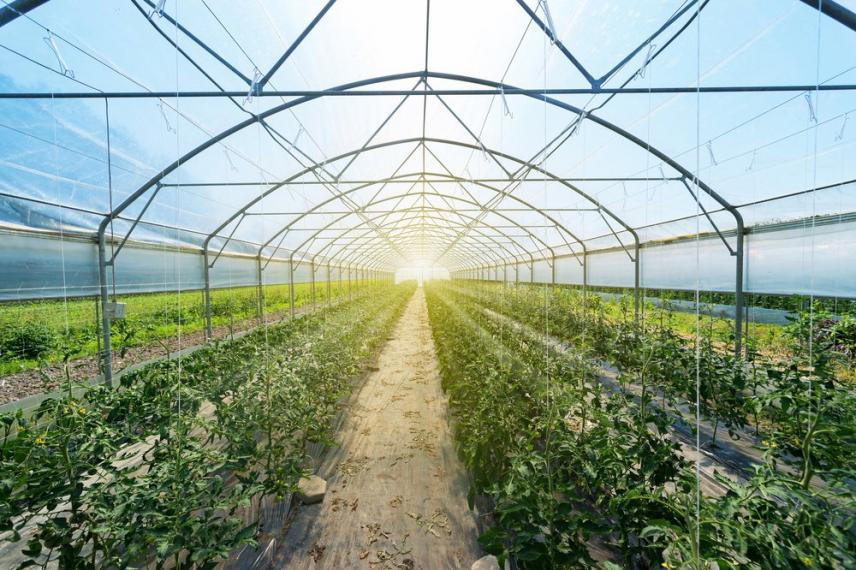Turning greenhouse waste into energy

Using fossil fuels to heat greenhouses is expensive and environmentally unsustainable. But how about heating them with plant waste from the greenhouses themselves?
That’s what Prof. Animesh Dutta, School of Engineering, is working towards. He’s producing a fuel-flexible boiler (heater) that can use a variety of non-conventional, yet readily available fuels in an efficient way.
One such fuel is called biocarbon. It’s made from plant matter – leaves, stems and vines of greenhouse plants – that is abundant in greenhouses, is costly to dispose of and has no resale value.
Biocarbon is normally made by a process called dry torrefaction, where the plant matter is heated to temperatures of 200-300 C for up to two hours to create a solid substance resembling charcoal.
However, this method produces a biocarbon containing high amounts of alkali earth metals, which increase the risk of agglomeration and corrosion, reducing its combustion efficiency and performance. Instead, Dutta uses hydrothermal carbonization (HTC). The plant matter is submerged in hot condensed water in an enclosed system under moderate temperature and pressure for up to 30 minutes.
This method reduces the alkali earth metals by 80 per cent and creates a more energy-dense biocarbon that can produce an amount of heat comparable to that of fossil fuels, with fewer greenhouse gas emissions.
But Dutta doesn’t want to stop there. This research is continuing to optimize the HTC process to produce a biocarbon to treat greenhouse process water containing nutrients. The water would pass through a biocarbon-packed column, producing clean water and leaving behind nutrient-enriched biocarbon. The biocarbon could be used as an organic growth substrate for greenhouse crops as well as for carbon sequestration in soil.
“Biocarbon is an ecofriendly and cost-effective alternative to fossil fuels,” he says.
Currently one challenge to the quick adoption of this technology lies in greenhouse boilers, which are not set up to burn biocarbon. But considering boilers are a 30-year investment for growers, Dutta believes it’s cost-effective to convert them to use other fuels. He and his research team hope to incorporate the HTC system and converted boilers into local greenhouses for testing by 2018.